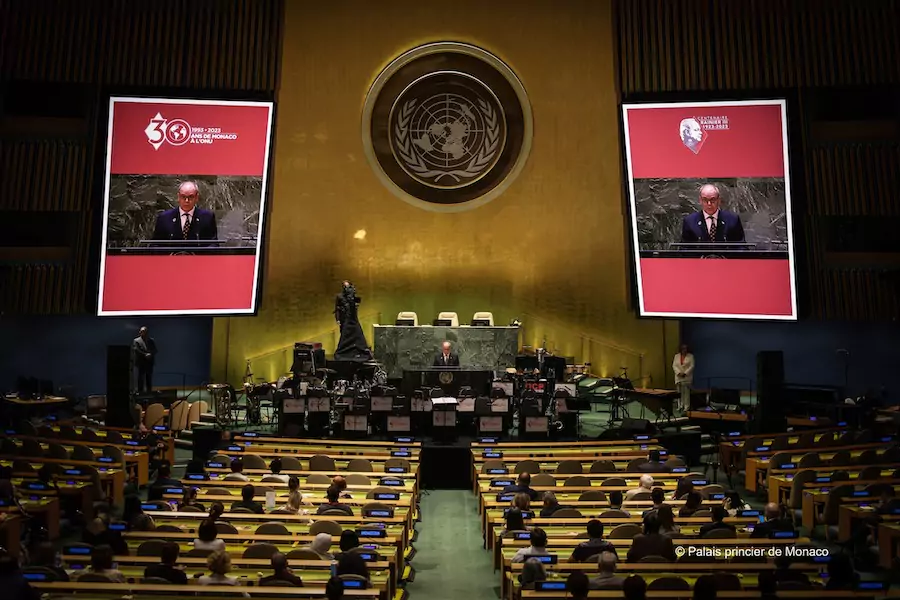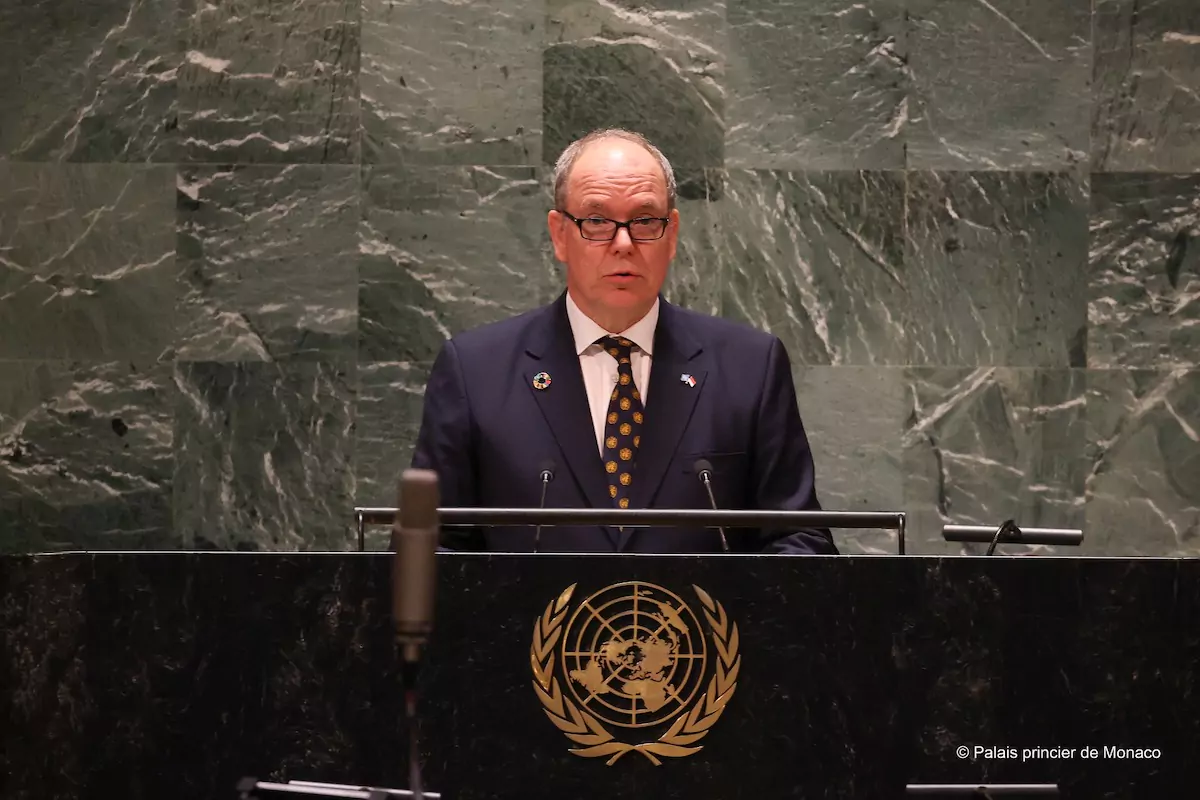The Treaty of the High Seas, backed by Monaco, has been adopted by consensus and standing ovation during the United Nations meeting in New York. In his speech to the UN, Prince Albert said the treaty must now be implemented “as quickly as possible”.
The adoption of the Treaty on 19th June, also known as BBNJ (Biodiversity Beyond National Jurisdiction), is an historic achievement marking the successful end of more than a decade of multilateral work.
It is considered key to protect the ocean, promote equity and fairness, tackle environmental degradation, fight climate change, and prevent biodiversity loss in the high seas.
It has been a priority for the European Union and its Member States, as well as the Principality of Monaco and its Head of State Prince Albert II.
In his address to the United Nations, of which Monaco has now been a part of for 30 years, Prince Albert said: “With this agreement, we are breaking the status quo. We commit ourselves to fighting more effectively against the threats affecting the seas and oceans (…)
“The same determination that led to the conclusion of the negotiations must drive us forward so that this historic agreement is implemented as quickly as possible.”

What is written in the Treaty?
Areas beyond national jurisdiction cover nearly two-thirds of the world’s ocean, comprising the high seas and the Area, which is the seabed beyond national jurisdiction. They contain marine resources and biodiversity that provide invaluable ecological, economic, social, cultural, scientific and food-security benefits to humanity.
However, they are under mounting pressure from pollution – including noise, overexploitation, climate change and decreasing biodiversity.
The BBNJ Treaty sets up a procedure to establish large-scale marine protected areas in these high seas. It will facilitate efforts to reach the target to effectively conserve and manage 30% of land and sea by 2030, which was agreed in December 2022 within the Kunming-Montreal Global Biodiversity Framework.
It also contains clear rules to conduct environmental impact assessments, with the right checks and balances, before running activities in the high seas.
The Treaty will enter into force when 60 parties ratify it.
“This is a major win for biodiversity – a game changer for the protection of the ocean and the sustainable use of its marine resources,” EU Commissioner for Environment, Oceans and Fisheries VirginijusSinkevičius said. “The European Union and its Member States are committed to signing and ratifying the BBNJ Agreement as soon as possible. We urge others to do so too, as we hope the BBNJ Treaty will receive universal ratification and swiftly enter into force.”
This agreement is in addition to the United Nations Convention on the Law of the Sea (UNCLOS), which provides the legal framework under which all activities in the ocean take place.
Sign up for the Monaco Life newsletter. For the latest news, follow us on Facebook, Twitter, and Instagram.
Feature photo of Prince Albert at United Nations meeting in New York on 19th June credit Frédéric Nebinger, Prince’s Palace
